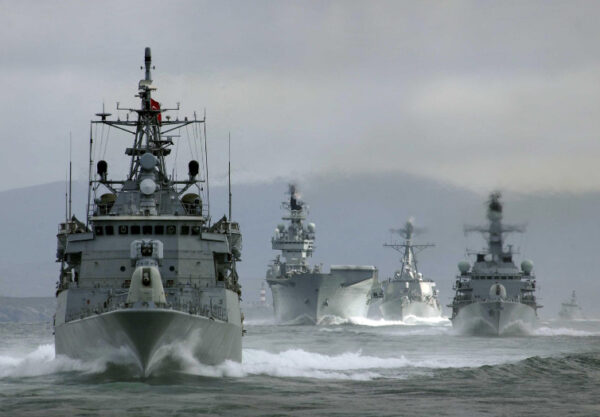Generational Change

Some of us had careers that started out with avoidance. There were a variety of strategies involved with the strategy of not winding up as an eighteen year old with a rifle. Most of our excuses involved the college deferment, so entry into uniform was only deferred, not eliminated. Graduating meant a four-year deferential between the kids drafted once they got through high school.
The Chairman claims he got there by complete accident. He needed a job and the Navy was hiring. He signed up in 1977 for some adventure, and the Draft was long gone. There was a spirit abroad in the land to rebuild the Services and return the US Armed Forces to a position of primacy. The problems were noted in the Carter Administration, and what followed were some good years for growth under Mr. Reagan.
Those were years of challenge, but also ones of a certain buoyancy and good spirits. The Cold War was won in 1990, though it actually was a transition to something else. The whole process had changed to reflect hanging on to the good that had been done with an All Volunteer military. And with 9/11, an entirely different sort of military doing entirely different things.
Some of that change was the burst of patriotism that encouraged young people to sign up. It was also the eligibility of those who had experienced the transition of the military from the years of the Draft. The Salts had elected to participate in commissioning programs in the Air Force or Navy, so there was residue of the Draft avoidance who served on for their retirements in the post-Cold War years, and the beginning of the Global War on Terror. That meant all those desert and mountain deployments in Iraq and Afghanistan. The challenge of maintaining forces in place in those nations required different sorts of conflict.
The Soviet experience in Afghanistan was something we remembered, and the fact that even with tough combat those Russians had to pull out in defeat. The depth of the catastrophic American pull-out only realized that the force had changed. The largess of the establishment that had overcome the Warsaw Pact had been used for other purposes, and the ability for the Air Force and Navy to produce aircraft and ships and operate them safely had been seriously degraded.
Sitting out on the patio, Splash had passed around his tablet with a message displayed. It was an announcement of a selection to Rear Admiral. We tried to remember if the officer named in the message had been on active duty when we left it. We toyed with that notion for a while, and how the institutions we served had been transformed by circumstance.
The men and women serving now have no recollection of what it was like. The shared purpose, the optimism and commitment to victory in the struggle. We have got a lot of rebuilding to do, and there is no apparent strategy or a plan to accomplish it. We will be watching with great interest, since we stumble ahead by dealing with problems by lowering standards. The meritocracy we experienced- promoting by competence- seems to have been discarded in favor of some statistical imperative from the Bureau of the Census.
Don’t take that as criticism of those leading the institutions. They are dealing with larger and different imperatives than we did. What does strike us is that our time in uniform had challenge and struggle. But the challenges and struggles of the current generation at the helm has to live and operate with what they have got. We were part of the 500-ship Navy, or t least one striving to meet that number. Today the number is a little over 280, and ranks behind China in numbers. With the shortfalls in recruiting, there has even been talk about bringing back the Draft to meet basic needs.
That actually may be a requirement if things continue go south on the world ocean. But we are here to assure you that it is more fun to grow smart than to shrink dumb. And we are proud to have been able to volunteer. All of us.
Copyright 2023 Vic Socotra
www.vicsocotra.com
